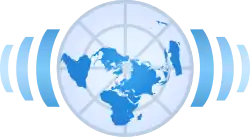Portal:Democratic Republic of the Congo
The Democratic Republic of the Congo Portal
The Democratic Republic of the Congo (DRC), also known as the DR Congo, Congo-Kinshasa, or simply Congo, or more infrequently Zaire (its official name from 1971 to 1997) is a country in Central Africa. By land area, it is the second-largest country in Africa and the 11th-largest in the world. With a population of around 112 million, the DR Congo is the most populous nominally Francophone country in the world. French is the official and most widely spoken language, though there are over 200 indigenous languages. The national capital and largest city is Kinshasa, which is also the economic center. The country is bordered by the Republic of the Congo, the Cabinda exclave of Angola, and the South Atlantic Ocean to the west; the Central African Republic and South Sudan to the north; Uganda, Rwanda, Burundi, and Tanzania (across Lake Tanganyika) to the east; and Zambia and Angola to the south. Centered on the Congo Basin, most of the country's terrain is covered by dense rainforests and is crossed by many rivers, while the east and southeast are mountainous. The territory of the Congo was first inhabited by Central African foragers around 90,000 years ago and was settled in the Bantu expansion about 2,000 to 3,000 years ago. In the west, the Kingdom of Kongo ruled around the mouth of the Congo River from the 14th to the 19th century. In the center and east, the empires of Mwene Muji, Luba, and Lunda ruled between the 15th and 19th centuries. These kingdoms were broken up by Europeans during the colonization of the Congo Basin. King Leopold II of Belgium acquired rights to the Congo territory in 1885 and called it the Congo Free State. In 1908, Leopold ceded the territory after international pressure in response to widespread atrocities, and it became a Belgian colony. Congo achieved independence from Belgium in 1960 and was immediately confronted by a series of secessionist movements, the assassination of Prime Minister Patrice Lumumba, and the seizure of power by Mobutu Sese Seko in 1965. Mobutu renamed the country Zaire in 1971 and imposed a personalist dictatorship. Instability caused by the influx of refugees from the Rwandan Civil War into the eastern part of the country led to the First Congo War from 1996 to 1997, ending in the overthrow of Mobutu. Its name was changed back to the DRC and it was confronted by the Second Congo War from 1998 to 2003, which resulted in the deaths of 5.4 million people and the assassination of President Laurent-Désiré Kabila. The war, widely described as the deadliest conflict since World War II, ended under President Joseph Kabila, who restored relative stability to much of the country, although fighting continued at a lower level mainly in the east. Human rights remained poor, and there were frequent abuses, such as forced disappearances, torture, arbitrary imprisonment and restrictions on civil liberties. Kabila stepped down in 2019, the country's first peaceful transition of power since independence, after Félix Tshisekedi won the highly contentious 2018 general election. Since the early 2000s, there have been over 100 armed groups active in the DRC, mainly concentrated in the Kivu region. One of its largest cities, Goma, was occupied by the March 23 Movement (M23) rebels briefly in 2012 and again in 2025. The M23 uprising escalated in early 2025 after the capture of multiple cities in the east, including with military support from Rwanda, which has caused a conflict between the two countries. A peace agreement brokered by the United States was signed by Rwanda and the DRC on 27 June 2025. Despite being incredibly rich in natural resources, the DRC is one of the poorest countries in the world, having suffered from political instability, a lack of infrastructure, rampant corruption, and centuries of both commercial and colonial extraction and exploitation, followed by more than 60 years of independence, with little widespread development; the nation is a prominent example of the "resource curse". Besides the capital Kinshasa, the two next largest cities, Lubumbashi and Mbuji-Mayi, are both mining communities. The DRC's largest exports are raw minerals and metal, which accounted for 80% of exports in 2023, with China being its largest trade partner. For 2023, DR Congo's level of human development was ranked 171st out of 193 countries by the Human Development Index and it is classified as being one of the least developed countries by the United Nations (UN). As of 2022, following two decades of various civil wars and continued internal conflicts, around one million Congolese refugees were still living in neighbouring countries. Two million children are at risk of starvation, and the fighting has displaced 7.3 million people. The country is a member of the United Nations, Non-Aligned Movement, African Union, COMESA, Southern African Development Community, Organisation Internationale de la Francophonie, and Economic Community of Central African States. (Full article...) Selected article -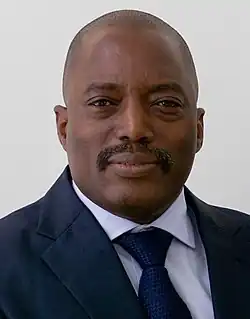 General elections were held in Democratic Republic of the Congo on 28 November 2011 for the President of the Republic and all 500 seats of the National Assembly. A facultative run-off on 26 February 2012 was shelved with a change in election laws allowing a presidential candidate to win with a plurality of the vote. Incumbent president Joseph Kabila, an independent candidate, was constitutionally eligible to run for a second term and defeated Étienne Tshisekedi of the Union for Democracy and Social Progress. Kabila was inaugurated on 20 December 2011. The government passed laws to abolish the second round of the presidential election and tried to change the legislative electoral system from proportional to majority representation, which was strongly criticized by the opposition. (Full article...) General images -The following are images from various Democratic Republic of the Congo-related articles on Wikipedia.
| ||||||
List of Featured articles
|
|---|
WikiProjects
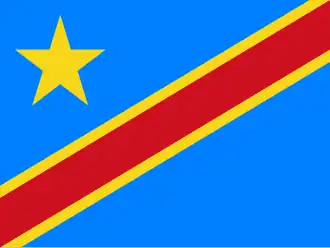 WikiProject Democratic Republic of the Congo
WikiProject Democratic Republic of the Congo
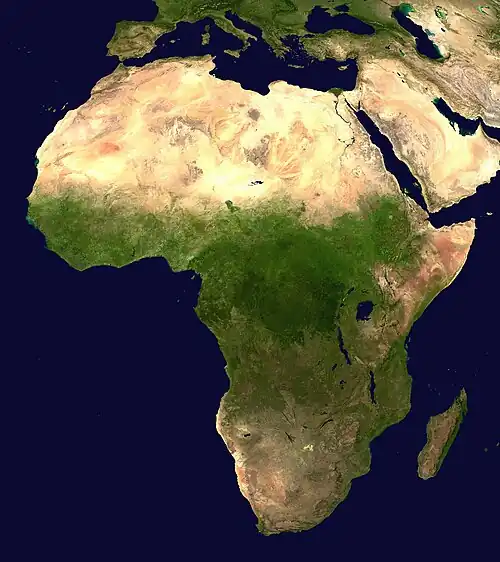 WikiProject Africa
WikiProject Africa
Topics
Categories

Related portals
Associated Wikimedia
The following Wikimedia Foundation sister projects provide more on this subject:
-
Commons
Free media repository -
Wikibooks
Free textbooks and manuals -
Wikidata
Free knowledge base -
Wikinews
Free-content news -
Wikiquote
Collection of quotations -
Wikisource
Free-content library -
Wikiversity
Free learning tools -
Wikivoyage
Free travel guide -
Wiktionary
Dictionary and thesaurus
-
 List of all portals
List of all portals -

-

-

-
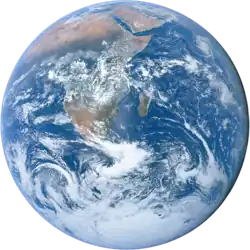
-

-
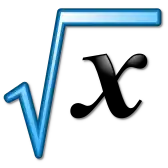
-

-

-

-
 Random portal
Random portal -
 WikiProject Portals
WikiProject Portals
.svg.png)
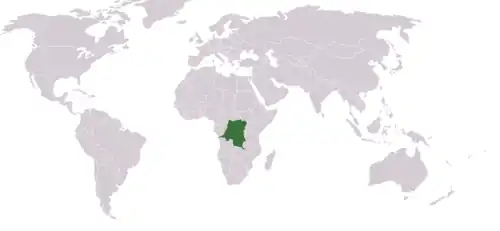

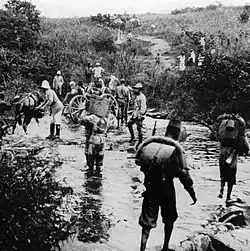
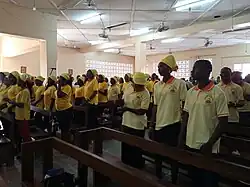
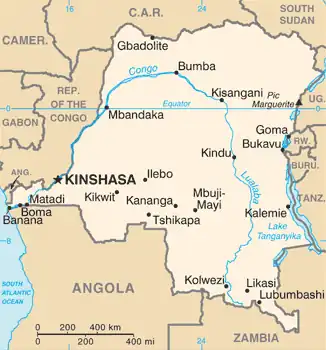
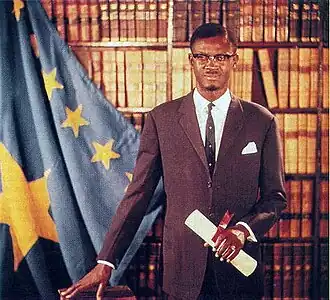
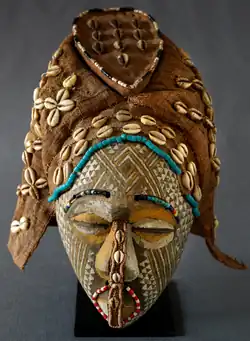
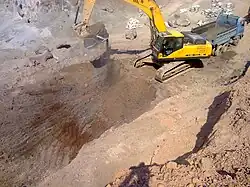
.jpg)
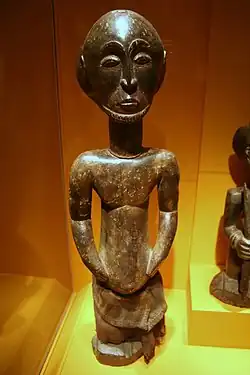
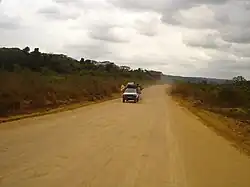

_-_Kasa%C3%AF-Central.svg.png)
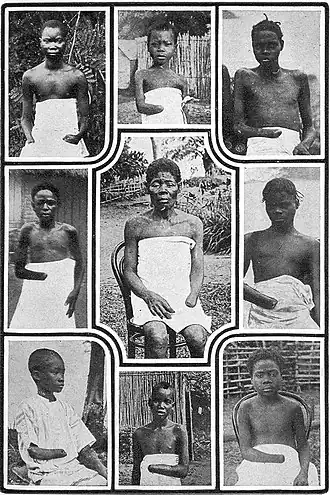
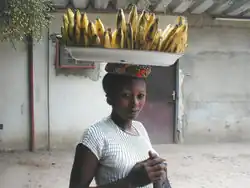


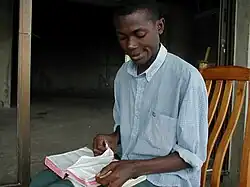
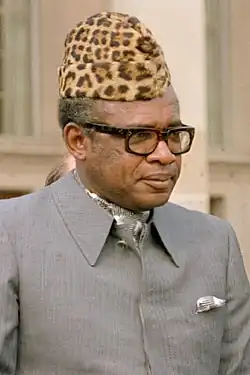
_(8458935824).jpg)
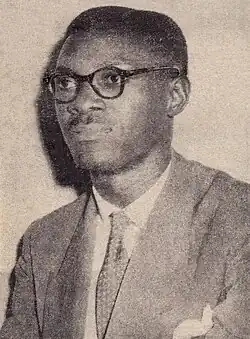
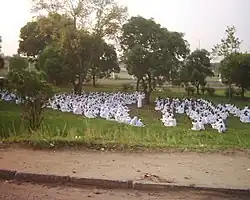
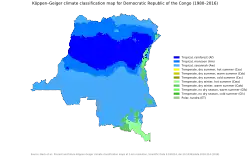
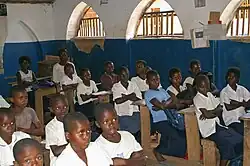
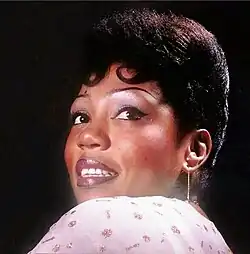
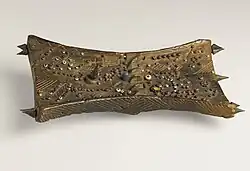
.jpg)
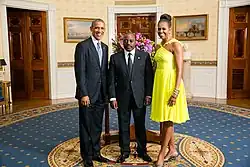
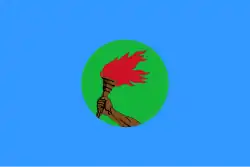

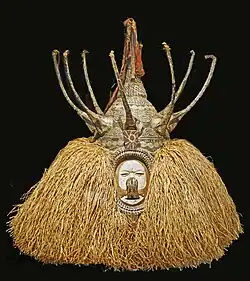

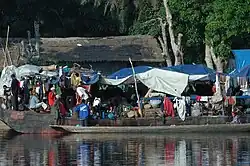
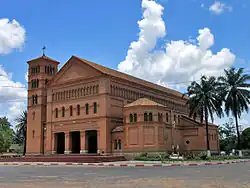
.jpg)
.jpg)
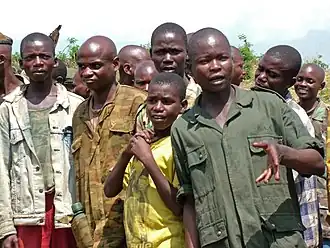
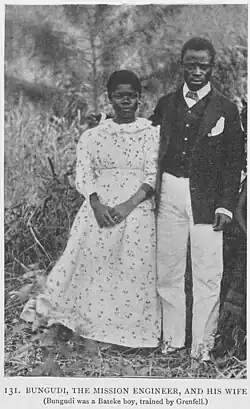
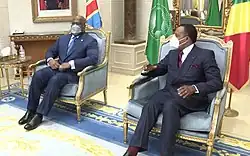
_%E2%80%93_Virunga_National_Park_(29).jpg)
.jpg)
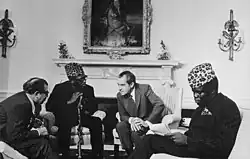
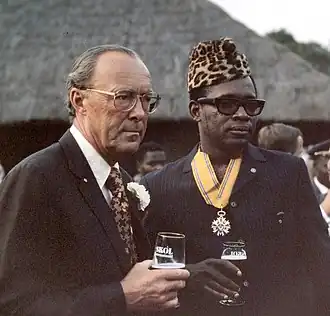

.jpg)
.jpg)
.jpg)
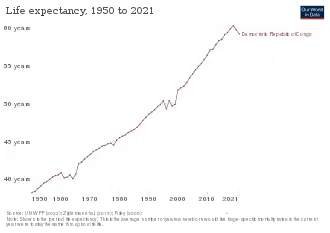
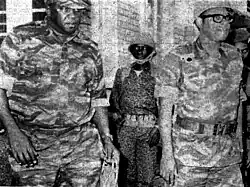
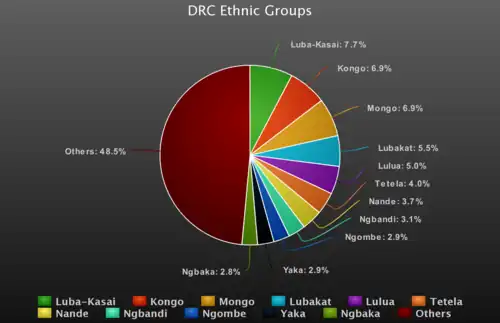
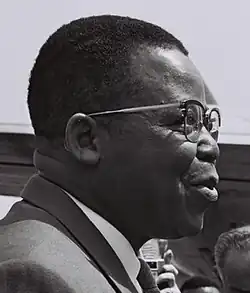
_of_clashes_between_M23_and_National_troops._(8782972992).jpg)
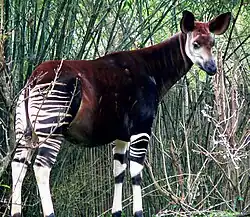
.svg.png)




